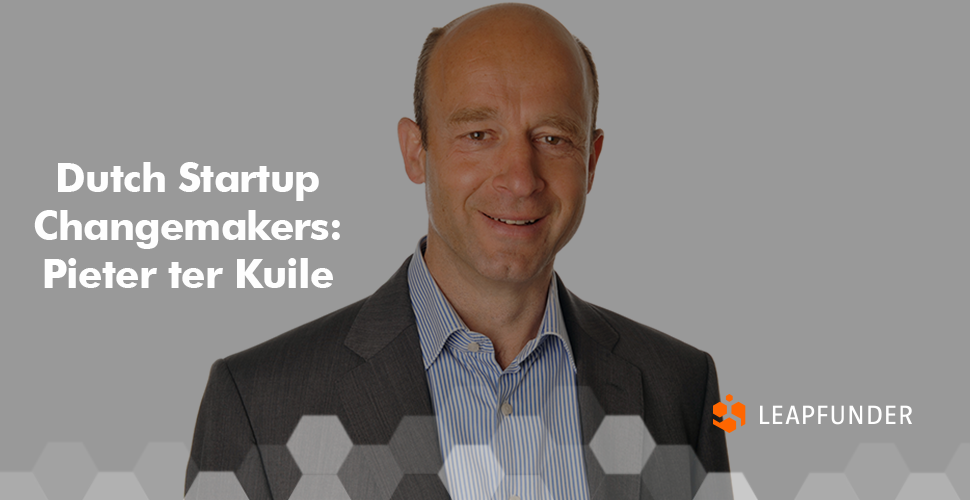Pieter ter Kuile, ex-Vice Chairman at the Dutch investment bank Kempen & Co, is one of the early investors in Leapfunder. He studied law in Amsterdam, obtained an MBA at Harvard, and started his career at McKinsey & Co, after which he founded his own company in financial fraud investigation. This job led him to Kempen & Co, where he stayed for 20 years, financially advising companies mainly in the energy field. Pieter was also the founder of the biotechnology specialisation of Kempen & Co.
Starting from 2014, he invested in all ProctorExam’s financing rounds. This Dutch company provides software for online proctoring to hundreds of universities and professional licensing companies. It has been acquired by a British division of the American company Turnitin. Find out if Pieter earned back his whole portfolio, if it was vital for him to work with other investors and if he’ll continue investing in startups.
1. Hi Pieter, thank you for agreeing to the interview. Could you tell us a bit about your background and how you started investing in startups?
I have worked at Kempen & Co as an advisor in mergers and acquisitions. Over time I also advised many companies on their listing at Amsterdam stock exchange. This way, I got involved with many startup companies and enjoyed these companies’ liveliness and highly motivating atmosphere. But investing in startups seemed risky. However, in the early years after 2000, and again after the financial crises, secure/stable shares like Ahold, KPN and banks lost most of their value and showed all stocks to be risky. And I had no influence nor specific knowledge when it comes to these large listed companies. With startups, I could get to know the team, the industry, understand the risks and opportunities involved, which meant better insights and a lot more fun.
2. What led you to invest in ProctorExam initially?
I had never invested in anything to do with the internet. However, when I saw ProctorExam’s proposal, it made sense to me. The team was highly motivated and seemed to have the right skills and interaction internally. They made the product very realistic by showing the first version of their product in a very open and constructive way.
3. What was your multiple? When did you invest, and when did you exit?
I invested in all its financing rounds. I started in 2014 with a small amount. As I got to know the management and the company more and more, my trust increased, and I participated in the next round (in some other investments, I haven’t participated in follow-up financing rounds). Since I invested in all the rounds, my multiple is an average of these rounds, in total just above six. When ProctorExam was sold, I had to exit as well. I believed in the company and would’ve liked to stay and see it grow and prosper; however, making a nice return also feels very good.
4. Did you earn back your whole portfolio? How much work did you have to do on your investments?
ProctorExam is a great success; with high risk, there’s a high reward. I earned my whole portfolio with Leapfunder back. Building up my investment in each company gradually helps me to reduce the downward risk of my portfolio. I have had two bankrupt investments (small ones); two are doing well; two are promising, however still at risk; and it’s too early to tell for my four recent investments.
I invest time upfront in meeting the team and understanding the business. Leapfunder provides a very attractive platform for meeting startups, the Round Table Sessions. I always reach out to other investors to get their perspective. After I invest, I like to spend time to support the management team if they appreciate that. I feel the initiative should come from the management, who is focusing on running the company and spending only a little time on the shareholders.
5. Was it essential to work with other investors in a syndicate?
For me, operating together with other investors is very rewarding. The Leapfunder Round Table Sessions offer a low profile opportunity to get the perspective from other investors. Leapfunder’s website offers an easy platform for contacting them. These contacts help evaluate my gut feeling as they broaden and challenge my perspective. Secondly, operating as a group can be beneficial in dealing with management. A group is much more influential than an individual.
6. Would this have been possible without Leapfunder?
Leapfunder added great value by structuring the consequential funding rounds, bringing investors together, and enabling larger rounds for the same management effort. The structure of the investment through a convertible loan is essential for startups. It enables them to attract financing at attractive terms that are fair to investors, without the need to have endless negotiations on the company’s value.
7. Will you continue investing in startups?
Absolutely, I already did. I enjoy working with highly motivated and exciting teams ready to make a difference. Supporting them and moving them forward with money and advice is very rewarding. And so far, it has proven financially attractive to invest in many different companies beginning with small amounts and expanding the investment in more successful companies over time. On top of the fun and societal rewards, startups provide an attractive opportunity for financial rewards.
Thank you very much for sharing this story with us, Pieter. We wish you the best of luck in your future endeavours.
Join our network of startups & investors!
